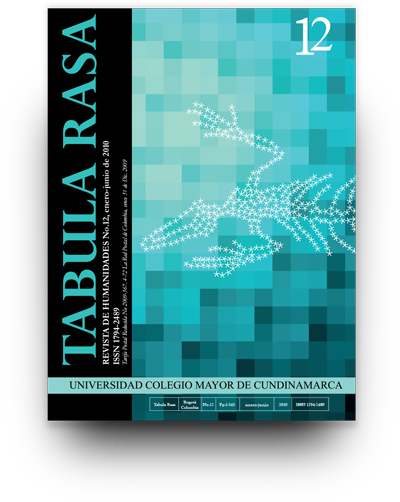Editorial
Editorial
Show authors biography
With this new issue, Tabula Rasa maintains its policy of contributing to the circulation of articles that are pertinent to open debates and provide inputs on suggestive trends in contemporary social and cultural theory. In addition to this crucial policy in an intellectual scenario where such interventions are indispensable, during these years we have been able to consolidate a publication that allows for the dissemination of advanced research from different disciplinary and transdisciplinary fields not only carried out and referred to Colombia, but To many other countries. It is worth remembering that all this has been possible thanks to the unconditional support received by the Universidad Colegio Mayor de Cundinamarca during these years.
For this issue we have a series of articles that combine in different ways those contributions to contemporary social and cultural theory with more empirically oriented contributions. The technologies of government, biopolitics and coloniality that go through the production of bodies, populations or knowledge concerns of the four articles that make up our session From the attic. The articles, productively marked by Foucaultian and coloniality categories, argue how the relations of domination in the conquest, the vicissitudes of biopolitics in the eighteenth century and their expression in the Bourbon reforms, the descents to the news of biopolitics by incorporating analytically the colonial experience, or contemporary forms of knowledge production in light of the intersections of feminist studies of science and the modernity / coloniality program.
For our Claroscuros section we have three articles that deal with the detail of genealogy, ethnography or cultural studies, the institutionalization of French teaching in the New Granda of the 19th century, the situations and disputes in the recovery of companies in Argentina , the historical representations of two groups of skinheads articulated to their identities, the relationship between territory, displacement and social representations, as well as the relationship between Social Work and social responsibility.
The alestra section includes some of the texts presented in the “Cultural Studies in the Americas: Commitment, Collaboration, Transformation” colloquium conducted jointly between the University of California-Davis and the Javeriana University from October 25 to 27, 2009. The presentations and Comments address aspects of the conceptualization and practice of cultural studies from different national contexts and institutional locations. Together they are testimonies of pregnancy, trajectories and desires articulated under the term of cultural studies.
Article visits 120 | PDF visits 49




